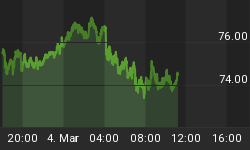There have been 11 recessions and 11 recoveries since 1949.
The current recovery is the slowest recovery since 1949 and closing in on the becoming longest.
Growth since the 2nd quarter of 2009 is a mere 2.1%. The Wall Street Journal asks Is Two Percent as Good as It Gets?

"The growth seen during the recovery might, for a while, be as good as it gets," the Federal Reserve Bank of San Francisco's John Fernald, Stanford University's Robert Hall, Harvard University's James Stock, and Princeton University's Mark Watson said in a study to be presented among Brookings Papers on Economic Activity.
Inquiring minds may wish to download the Brookings' report entitled Disappointing Recovery of Output After 2009 but I found it a waste of time.
Okun's Law
The report was mostly mathematical gibberish based on Okun's Law.
Okun's law (named after Arthur Melvin Okun, who proposed the relationship in 1962) is an empirically observed relationship between unemployment and losses in a country's production. The "gap version" states that for every 1% increase in the unemployment rate, a country's GDP will be roughly an additional 2% lower than its potential GDP. The "difference version" describes the relationship between quarterly changes in unemployment and quarterly changes in real GDP. The stability and usefulness of the law has been disputed.
Clearly, Okun's Law is at least as useless as any widely believed economic law, which is to say totally useless.
The supporting paper consists of 90 pages of largely unintelligible garbage such as the following.

Commendable Effort
The Wall Street Journal managed to condense 90 pages of nonsense down to 2 pages of nonsense. That's a highly commendable effort, and the best one could reasonably expect.
Here's the conclusion: "The causes aren't entirely clear."
I searched the 90-page report for the word "debt". Care to guess the number of hits? I bet you can: zero.
Modern Day Snake Oil
I was discussing economic indicators with Pater Tenebrarum at the Acting Man Blog a couple of days ago. He pinged me with the correct takeaway.
Economic forecasting is not a science, and it is actually not the task of economic science to make forecasts (contrary to what is commonly asserted). Forecasting is akin to the task of the historian. Mises called speculators "historians of the future".
Economic laws only play a role insofar as they can be used as constraints for a forecast. The problem is that all these models simply look at the data of economic history, at statistical series that always turn tail "unexpectedly", driven by human action.
All these mathematical models are complete humbug. It is modern-day snake oil.
















